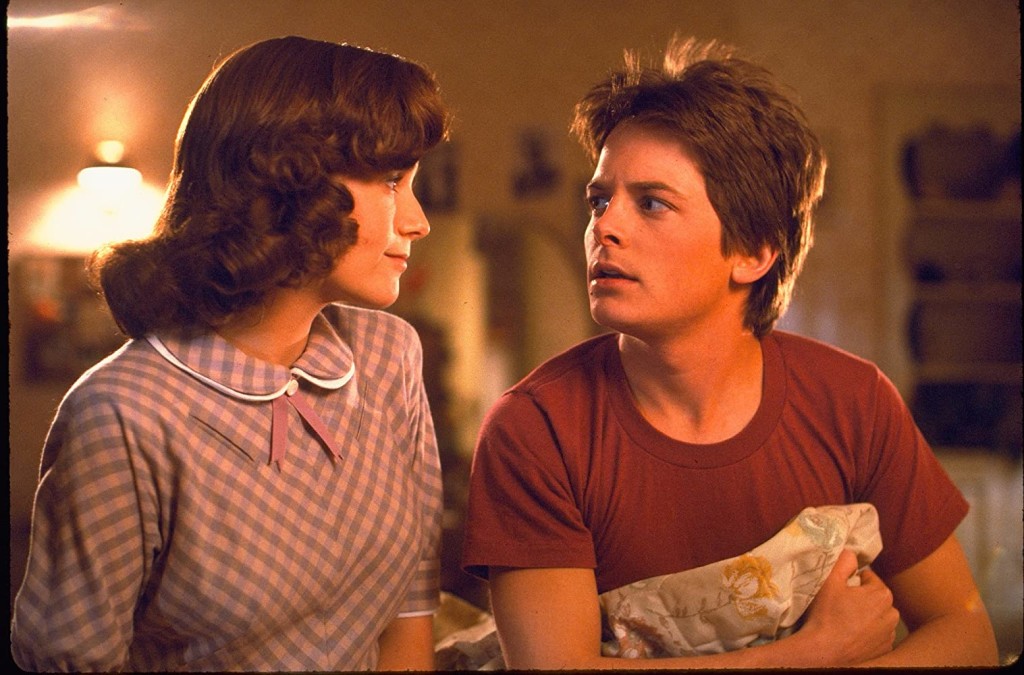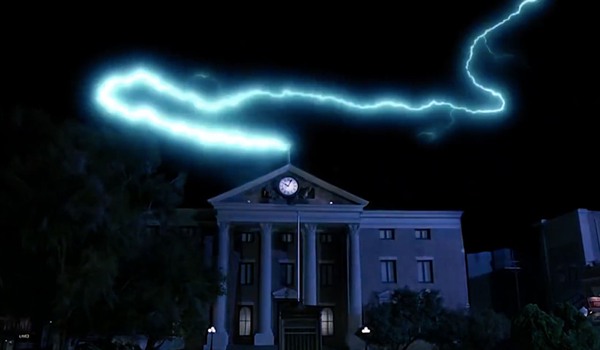Today I discuss one of the most advanced topics in all of screenwriting – SHIFTING REALITY!
Week 0 (concept)
Week 1 (outline)
Week 2 (first act)
Week 3 (first half of second act)
Week 4 (second half second act)
Week 5 (third act)
Week 6 (evaluate your first draft)
Week 7 (rewrite plan of attack)
Week 8 (begin the rewrite!)
Today I want to introduce the concept of SHIFTING REALITY. It’s a concept specifically born out of rewriting and I consider it to be one of the most advanced screenwriting topics there is. So if what I’m about to tell you feels like a bunch of mumbo-jumbo, it’s probably because you’re not ready for it yet.
What’s “shifting reality?” Shifting reality, in screenwriting terms, is this concept whereby whenever you change a variable in your screenplay, it moves that stage of your screenplay up one level. Meanwhile, all the other variables are still on the first level.
So if you imagine a building, the first draft of your script would be the first floor. Then, once you make a change in your script (for example, change the location of your story from California to Mexico), that moves THAT VARIABLE up to the second floor. HOWEVER, everything else in your script is still on the first floor.
At first, this may not seem like a big deal. The shift is slight enough that everything about the script still technically “works.” But the problem is when you keep changing a variable while everything else stays the same. For example, let’s say your original location was California. Then, for the second draft, you set the story just below the Mexico border. However, after reading that draft, you realize the story probably works better if your main character is from Mexico. So, in the third draft, you change the nationality of your hero to Mexican.
At this point, your main character is on the third floor. But the rest of your script is still on the first floor. This is when shifting reality starts to affect your screenplay in a big way. You’re making changes to major variables and not updating the rest of the variables to reflect that.
Have you ever seen a movie where, out of nowhere, there’s a scene that’s tonally different from the rest of the film? Maybe the rest of the movie is a drama and this scene is a comedic one. The average person is confused when this happens. But I always know what happened. That scene was a victim of not keeping up with the rewrites. It was a scene written early on when the script was more of a comedy. The writers liked it so much that even as they moved all the rest of the variables up, they never adjusted that scene. So while the script finished up on the tenth floor, that scene was still on the second floor.
Here’s the scary part. I’m using one variable as an example. But imagine you’re changing multiple variables each draft. You’re changing your hero from a man to a woman. You’re changing the setting from the 80s to modern day. You’re changing the love interest from a jovial risk-taker to a regimented taskmaster. The friend character who becomes a villain at the midpoint? You’re keeping them a friend the whole way through now. And instead of the story taking place in New York, you’re going to have it take place in a small town to make the movie more charming.
If you’re making all of these changes and you think you can still keep 60% of the dialogue scenes in your script? You’re crazy. Well, you’re not crazy. But you’re not realizing how big of an effect those changes are having on the rest of the story. Even if you just changed the main character from a man to a woman, a huge chunk of your first draft is going to be left behind.
I’ve actually had this conversation a lot lately because everyone’s turning their male protagonists into females since that’s what the market wants. And everybody thinks that, literally, all they have to do is swap out the names and keep the rest of the script the same. That the a female character who SOUNDS like a male character will actually be revolutionary.
I’m sorry to be the one to break it to you but it never works that way. I’ll give you an example from a recent conversation.
Writer: “I’ll just make the main character a girl and not change anything else.”
Me: “Okay, so does your love interest remain a woman then or are you changing her to a man now?”
Writer: “Um… she’ll stay a woman.”
Me: “Okay, was our heroine always a lesbian or was she once straight?”
Writer: “Um… she once dated guys but then she realized she was gay.”
Me: “What made her realize that? Did she have a bad experience with men that pushed her towards women or was it something she always knew but repressed until recently?”
Writer: “Um, she was assaulted by a guy in college. That changed the way she looked at men.”
Already, within three questions, this character’s life experience sounds completely different from the original male protagonist’s. Which is the point. Once you change a variable, it changes so many other variables. If you ignore that and stubbornly keep all the other variables the same, your script is going to read weird.
Here’s the good news. You want to see shifting reality as something that CAN WORK FOR YOU. Not AGAINST YOU. When you shift any major variable in your script, it opens the door to change problem areas in your script. That character you always hated or that act that you always hated? If you look at those things through the lens this new change brings, you realize there are solutions that weren’t there previously.
I’ll give you an example. In the early drafts of Back to the Future – the ones being rejected by every studio in town – the time machine was a refrigerator. Not surprisingly, one of the big complaints about the script was the third act. It was a mess. It had something to do with going to a nuclear test site and using the energy from a nuclear bomb to power the time machine so it could get back to the future (yes, Spielberg would hold onto this idea for Indiana Jones 4). The third act didn’t feel consistent with the rest of the movie.
Then, at some point during the rewrites, Bob Gale and Robert Zemeckis came up with this idea that the time machine be a car. Staying within our analogy, this meant that the time machine went up a floor. But the rest of the story, specifically the third act, was still down on the previous floor. It was up to Bob and Robert, then, to see the rest of the story through this new lens. If they’re still thinking in terms of the last draft, they’re probably thinking the car is going to be out by the nuclear test site and they’re going to have to drive around the explosion really fast to get the energy needed to jump back to the future.
No.
If the car is the time machine, you don’t need the nuclear test site anymore. You make the car itself nuclear. Hold on, but wait. If the car is nuclear and they don’t have access to nuclear fuel, how do they get back? Well, what are some things that have a lot of power back in the 1950s? Lightning. Lightning has a lot of power. Okay, but how do you bottle up lightning? Well, it’s the past! So, theoretically, if there was a storm, Marty would know about it. So he’d know lightning was coming. Okay, but how do they catch it? Hmmm… maybe it hits the town square clock tower. Yes! And that day becomes infamous in town, so Marty would know the exact time the lightning struck. Now we know how to capture the lightning.
Since we’ve all seen Back to the Future, this sounds obvious to us. But these things are never obvious when you haven’t thought of them yet. And this is exactly what I’m telling you. When you move a variable up a floor, it provides you opportunities that you were previously blind to. You know how, in a video game, you’ll come to a locked door and a message will read, “You don’t have the skills to open this door yet.” It’s only when you achieve a few other things in the game that you have the special knowledge to come back and pick the lock. That’s what variable changes do. They allow you to go back and open up doors that you couldn’t get through before.
I know this is a bit confusing. But the main two things to remember are, one, whenever you make a big change, make sure to update all of the other variables in your script to reflect that change. And two, every major change you make opens up new lenses to see your script through to fix problems you thought were unfixable. I encourage you, whenever you make a major change to IMMEDIATELY think about how it affects the biggest problems in your story. I’m willing to bet it will solve at least one of them.
Keep rewriting my friends. A little over a month left until the Comedy Showdown deadline!!!



